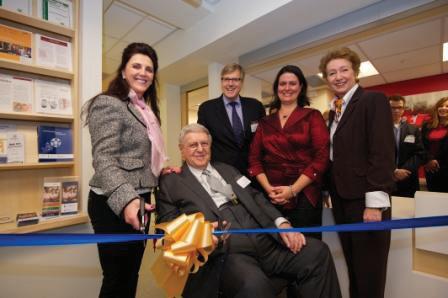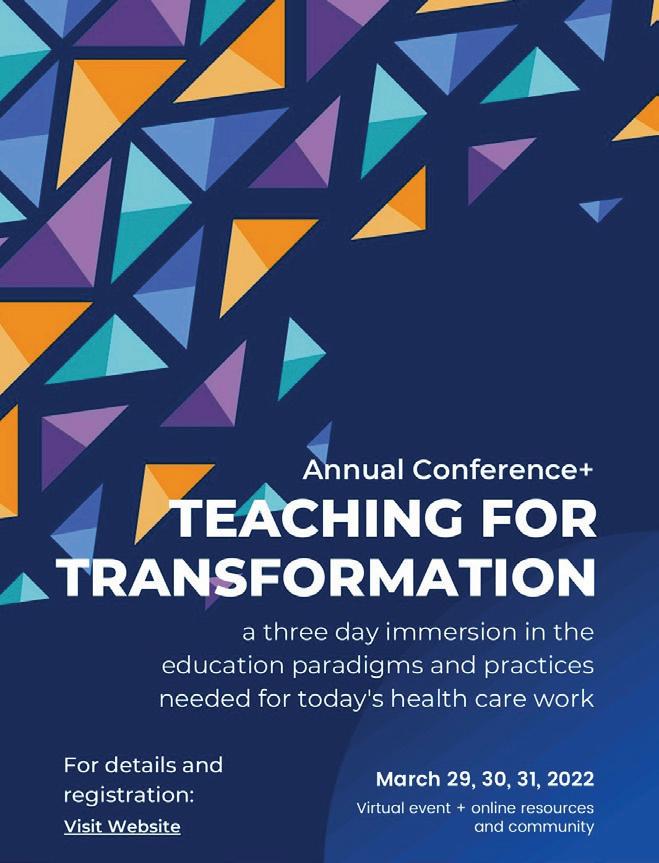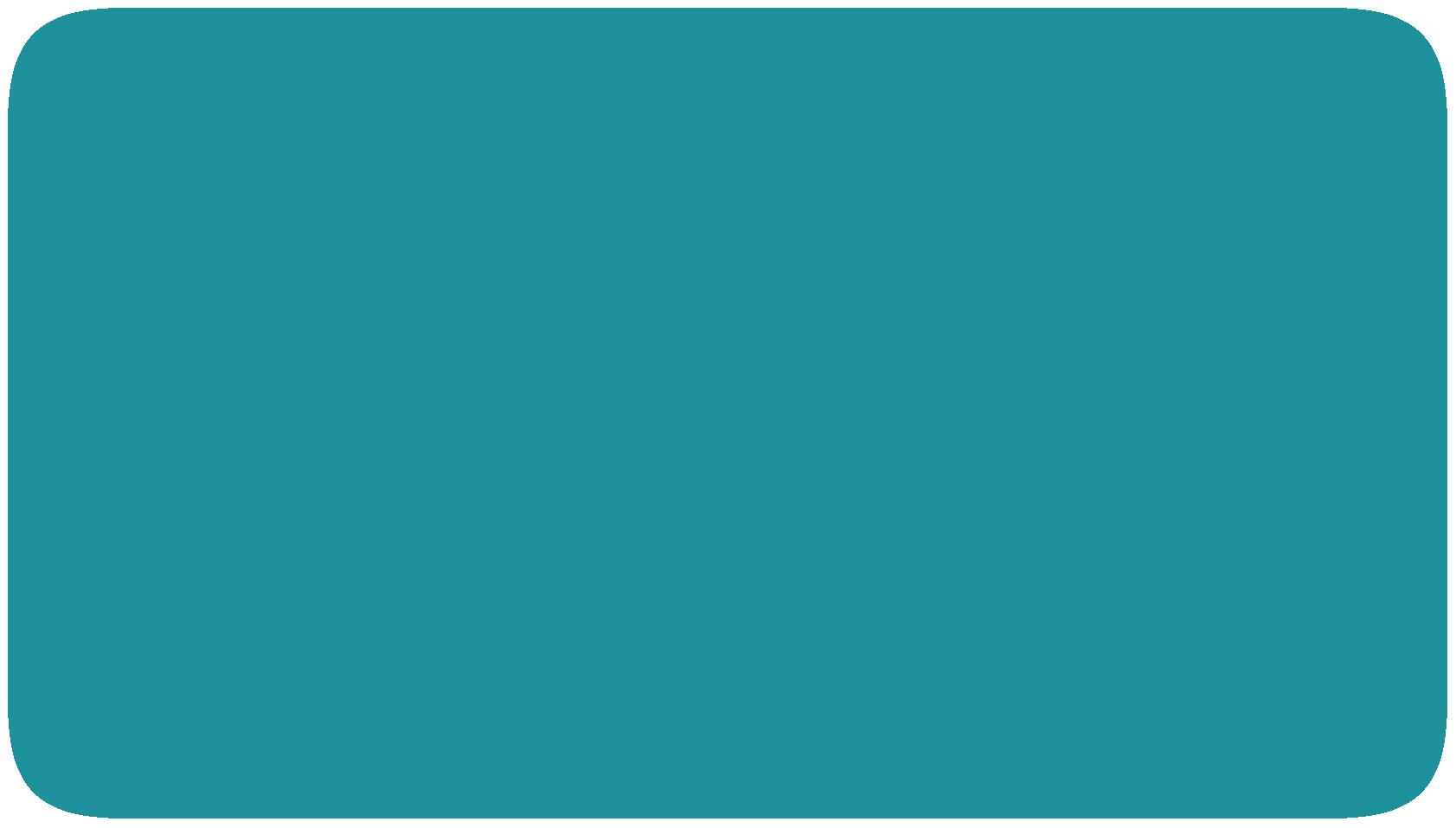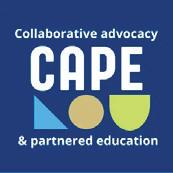Celebrating, Connecting, and Checking In: CACHE 2021-2023 Biennial Report
We wish to acknowledge this land on which the Centre operates. For thousands of years it has been the traditional land of the Huron-Wendat, the Seneca, and the Mississaugas of the Credit.
Today, this meeting place is still the home to many Indigenous people from across Turtle Island and we are grateful to have the opportunity to work on this land.
In addition to acknowledging this land, the Centre also commits to learning and striving each day toward Truth and Reconciliation.
CACHE Biennial Report 2023
The path toward trust lives and grows through collaboration
Welcome Change, stability, continual reconnection.
This biennial report covers a dynamic and full period (July 1, 2021 to June 30, 2023) for health and social care, showcasing the strong ties between dedicated people across our system.
We are humbled and honoured at CACHE to have been part of the efforts to support education early in the pandemic and to now be leading the way in scaling and sustaining innovations that those rapid efforts seeded.
During this report time, CACHE was renamed as part of a journey to align with our aspirations:
▪ ensuring meaningful inclusion and accurate representation
▪ nurturing longstanding relationships and partnerships, and identifying new opportunities
▪ strengthening the community-practice-education bridge
▪ supporting national efforts to meet the health and social care needs of communities now, and in the future.
1 CACHE Biennial Report 2023
CACHE Aspirations
This report shares integrative impact stories built around our three strategic aspirations, all achieved in partnership and through an interprofessional approach.
These stories are punctuated by key spotlights.
Viewedthrough an interprofessionallens
Integrating
Including
Redefine teams and collaboration through meaningful inclusion and representation.
Integrate curricula, knowledge, and practice by connecting people, places, and programs.
Inspiring
Inspire and lead collaboration through partnerships and innovation.
Achieved in partnership
CACHE Biennial Report 2023
2
Impact From Local to Global
CACHE continues to collaborate with local, national, and international partners to advance education, practice, research, systems, and policy toward better health and social care for all. CACHE is invited to deliver professional development (PD) programs, invited talks and workshops, provide coaching and consultations, and partner on research and innovation projects around the world. As evidenced by these various invited opportunities and partnerships, CACHE continues to be recognized as a leader in the field.
A PD program happened here
Canada - Ontario: GreaterToronto Area (GTA), Belleville, Quinte West
• Nova Scotia: Halifax
• Perth,Australia
• Ann Arbor, Michigan
• Singapore
A participant came from here (PD, talk, workshop)
Canada - Ontario: Toronto, Oakville, Bolton, Brampton, Burlington, Whitby, Thornhill, Thunder Bay, Woodbridge, Penetanguishene, Guelph, Belleville, Quinte West, Oshwekan
• Quebec: Montreal
•
Alberta: Calgary, Edmonton
• British Columbia: Vancouver
•
Manitoba: Winnipeg
• Nova Scotia: Halifax
• New Brunswick:
St.John, Moncton. United States of America - Avon, Connecticut
•
Glendale, Wisconsin
Brazil
• Saudi Arabia
• Ann Arbor, Michigan
• Georgia
• South Korea
• Singapore
• Perth, Australia • Belgium
• Italy
• France
• Germany
• Switzerland
• United Kingdom of Great Britain and Northern Ireland
An invited talk or workshop was hosted here
Canada - Ontario: GreaterToronto Area (GTA) (e.g. Hamilton, Toronto)
•Quebec: Montreal. United States of America - Cleveland, Ohio
• Denver, Colorado
• Newark, New Jersey
• New York, New York
•Lincoln, Nebraska
• Towson, Maryland
• Philadelphia, Pennsylvania •
Thailand
• Hong Kong
A collaboration is happening here (research/innovation)
Canada - Ontario: Ottawa (National)
•Toronto
• London
•Thunder Bay
•Quebec: Montreal
• Nova Scotia: Halifax. United States of America - Gainsville, Florida
Netherlands
• Manchester
• Pomona, California
• Sweden
•
• Melbourne, Australia
• Hong Kong
•
Mumbai, India
• South Tamil Nadu, India
• SouthAfrica
• United Kingdom
• Turkey
•
São Paolo, Brazil
• Jordan
• Singapore
•Tennessee •
3 CACHE Biennial Report 2023
Map of activity from July 1, 2021 to June 30, 2023
Much to celebrate
The achievements highlighted here represent snapshots of special moments within two stand-out years. It has been a time of change across our system, and collaboration has been the thread that has held us together and helped teams hold on to the joy of work.

JUL ‘21



SEP ‘21

10 year Anniversary of the Grand Opening of the
NOV ‘21


COVIDCareLearning.ca receives 2021 Ted Freedman Award for Innovation in Education

Annual Conference+


MAR ‘22

SEP ‘21

CAPE receives Public Health Agency of Canada Immunization Partnership Fund for PSW-led vaccine education for PSWs: A coalition to rebuild trust and support informed choice



VITAL Program receives Helen P. Batty Award for Excellence and Achievement in Faculty Development: Innovation in Program Development and Design
MAY ‘22
CACHE Biennial Report 2023
4
Highlights of achievements
Among these accomplishments from July 1, 2021 to June 30, 2023, are awards reflecting successful collaborations, symbolic language shifts born out of reflection and embodying commitments and actions, and significant events where innovations were shared within local and global communities. These achievements are not exclusive to CACHE, but are outcomes of a robust community and network of learners, educators, practitioners, leaders, patients, clients, families, and caregivers. Thank you!
MAY ‘22


Centre Renaming and Strategic Plan 2022-2027
Launch

OCT ‘22

Together: Stories of Collective Impact, An international magazine by CACHE Launches

APR ‘23


Team Primary Care: Training for Transformation Launches


CACHE hosts the Collaborating Across


5 CACHE Biennial Report 2023
JUN ‘23
FEB ‘23
By the numbers
37 55 4200+
IPE Curriculum Learners
599
Peer-reviewed publications
Total PD Learners Research & Innovation Grants
$9,707,775 CAD
$11,710 AUD
$1,000,000 HKD $45,438 USD
Total Research & Innovation funds
CACHE values collaboration and includes our contributions to research and innovation across various roles. Data represents contributions to securing funding across all roles on grants (e.g. PI, Co-I, and Collaborator); not all funds are held at CACHE.
72 14
Local, national, and international awards
37
Local, national, and international invited talks, lectures, and keynotes
Local, national, and international peerreviewed conference presentations
CACHE Biennial Report 2023 6
Figures for period July 1, 2021 - June 30, 2023

At CACHE, we are redefining teams and collaboration through meaningful inclusion and representation. We are honoured to have worked with patient/client and family/caregiver partners (originally as “health mentors”) since CACHE’s origins as the Centre for Interprofessional Education (CIPE) in 2009.
We also recognize the importance of continually challenging ourselves through questions like:
Who else could we be partnering with?
How better could we recognize and remunerate patient/client and family/caregiver partners for their important contributions and leadership?
In what ways could we most meaningfully integrate partners’ knowledge and experience into our educational design and delivery?
We look to our broader community of collaborative healthcare and aim to build from the strengths of interprofessional collaboration (IPC) to mitigate unhelpful hierarchies within health and social care spaces. We changed our name in May 2022 in part to address these hierarchies. Use of language like “collaborative healthcare,” in addition to “interprofessional,” can be more inclusive of patients, clients, and communities and also crucial team members like unregulated care providers and families/caregivers.
Importantly, we keep in mind that all our experiences and perspectives are interconnected. Our workplace identities relate to our personal identities.
In healthcare we often focus on equity as a target for health workers to address with and for communities and patients. Yet, we also need to build and support equity within teams and organizations. At CACHE we have started to ask: “Do we invite ‘diverse identities’ into teams but then conform individuals to our norms, or do we invite individuals in to actually transform the ways we work?” Our international magazine Together continues to humble us as we see the wide-ranging innovations from local to global contexts pour in for mutual sharing and growth of the community that is committed to working and learning together toward a healthier world.
Continually working toward meaningful inclusion begins and ends with humility and a commitment to learning and unlearning. We spotlight three examples in the stories that follow and celebrate our partners and community members who make our vision and mission matter, highlighting how CACHE continues to meet our Including aspiration:
▪ We value all contributors to healthcare including support workers, administrators, and members of diverse professions and disciplines within and beyond the health sciences.
▪ We commit to partnering with patients/clients, families/caregivers, and communities in striving toward equitable, accessible, and welcoming environments.
▪ We will broaden who is included and represented in interprofessional education, healthcare teams, and collaborative practice with a lens of inclusion, diversity, equity, and accessibility (IDEA).
7 CACHE Biennial Report 2023
SPOTLIGHT ON: Personal Support Worker Month
Personal support workers (PSWs) are a cornerstone of the healthcare system. And yet despite this, they are, at times, under-recognized team members. Collaborative Advocacy & Partnered Education (CAPE), a partnership between CACHE and The Institute for Education Research (TIER) at University Health Network, seeks to change that.
Throughout the years, the CAPE program has evolved and grown into a suite of continually expanding curricula. Currently, these offerings include three courses and a module, and most recently, the development of an annual PSW awareness month.
The 2022 Senior Interprofessional Design Projects within the IPE Curriculum at the University of Toronto (UofT were partnered with CAPE and Centennial College, one of CACHE’s key partners. The Senior Interprofessional Design Projects are open to UofT health professions students who conceptualize, lead, and implement projects with guidance from partner organizations, service users, and faculty leads.
This highly successful iteration of the projects, led by CACHE Associate Director, Sylvia Langlois, and coordinated by UHN Education Coordinator at the time, Gregory Collins, resulted in two CAPE-based initiatives: a new elective for students in health-related disciplines at UofT and a full, comprehensive plan to launch a new initiative: PSW month. The month’s aim is to increase awareness of the important work PSWs do, as well as engage and expand the CAPE community. Bringing the Senior Interprofessional Design Projects to fruition, PSW Month launched in May 2023





8 Including • Integrating • Inspiring
CACHE Biennial Report 2023
~ CAPE social media campaign posts
SPOTLIGHT ON:
Patient Advisory Group and Partners –Opportunities for Leadership and Facilitation
The Patient/Family/Caregiver Partner Advisory Committee plays a pivotal role advising faculty leading the University of Toronto (UofT) Interprofessional Education (IPE) Curriculum; the IPE Curriculum is collaboratively led by CACHE for approximately 4200 health and social care students from eleven health science programs.
This 10 person strong Committee leads exciting opportunities to advance the roles of the patient partner community in the education space, driving positive change in the health profession education landscape. The Committee represents over 100 individuals who are part of the patient/client and family/caregiver partners network collaborating with CACHE. At the heart of our healthcare ecosystem, this Committee inspires future health and social care providers to advocate for patients/clients and families/caregivers to be recognized and included as active partners on the team, and to practice in collaborative, relationship-focused ways, such as ensuring patients/clients/families/caregivers are engaged in shared decision-making processes.
Committee members have guided opportunities to recruit new partners, exploring approaches to creating a more representative and diverse network. They have contributed to the development of materials to aid onboarding of new partners, with special attention to resources to support individuals who share their health journey and experiences in the healthcare system (e.g. trauma-informed education). As small group facilitators, they foster productive discussions, propose innovative solutions, and advocate for the needs and rights of patients/clients and families/caregivers. By facilitating
student discussions as part of the IPE Curriculum, patient/client/family/caregiver partners bridge gaps in student understanding, providing students with knowledge and perspectives directly from patient/client/family/caregiver experiences. Such experiences and time to meaningfully engage with patients/clients/families/caregivers is not always offered in health professions education and valuing the experiential knowledge that they provide enhances students’ appreciation of different forms of knowledge and cultivates an understanding of why patient/client/family/caregiver partners should be recognized as foundational team members.
Through their leadership roles, the Patient/Family/ Caregiver Partner Advisory Committee contributes to redefining teams, broadening who is included and how. These dedicated individuals bring a wealth of lived experiences and unique perspectives, making them indispensable leaders in advancing patient-partnered care. Thanks to the patient/client/family/caregiver partners’ work, we have heard and witnessed firsthand some of the transformative impacts on students’ perspectives and anticipated changes in their future practices.


9 Including • Integrating • Inspiring
CACHE Biennial Report 2023
SPOTLIGHT ON: Together: Stories of Collective Impact
In Fall of 2022, CACHE launched Together: Stories of Collective Impact, a magazine that recognizes the international community engaged in collaborative healthcare and education, sharing innovations, research, and initiatives.
Together invites everyone in this collaborative space to connect, celebrate, and champion how we work and learn together for a healthier world. What better way to elevate this community than to celebrate the ways we are co-creating meaningful intersections, engagement, and opportunities for all who connect with CACHE and its partners. Our hope is that Together will continue to foster this community, building connections and sharing stories.
Truly a collaborative effort, the team that brought the vision of this magazine to fruition, and continues to put in the work to write, review, edit, and design this
quarterly publication includes, Elizabeth Cadavid (Editor), Farah Friesen, Alan Joson, Sofia Mirzazada, Stella Ng, Denise Ponte, Belinda Vilhena, and Noor Yassein.
In honour of Together’s first birthday, we share five stories from our first volume.
Thanks for choosing Together! We appreciate the opportunity to learn, work with, and celebrate this collaborative community.

We invite you to read, share, and contribute to future issues and sign up for our magazine here.
Here are five stories from our first year (Volume 1, Issues 1-4):
1. Elevating Impact: What Our Uniqueness Offers the Post-Pandemic World Vol. 1.1 Fall 2022, p. 18.
2. Strengthening Collaboration Among Health Students To Help Communities Improve Their Health Vol. 1.2 Winter 2023, p. 11
3. Historic Grant Given to Transform Interprofessional Primary Care Training and Education Across Canada
Vol. 1.3 Spring 2023, p. 24.
4. Collaborating Across Borders (CAB) VIII Conference Special Vol 1.4 Summer 2023, p. 8.
5. CACHE & Patient Engagement: What, Why, How, and Who? Vol. 1.4 Summer 2023, p. 30
10 CACHE Biennial Report 2023
Including • Integrating • Inspiring
To enact our aspiration of integrating curricula, knowledge, and practice by connecting people, places, and programs, CACHE continually engages in knowledge mobilization through Research integration, Innovation, Scholarship and Evaluation (RISE).
Knowledge mobilization focuses on moving knowledge into active service for the broadest possible good (van der Wey in Fenwick 2012). Knowledge mobilizers include organizations and people embodying multiple roles and includes practitioners and researchers of diverse backgrounds.
At CACHE, knowledge mobilization includes and values all sources of knowledge (e.g. clinical, experiential, research) and is a process of relationship building for knowledge creation, informed action, and knowledge sharing. CACHE’s focus continues to be capacity building and leadership in collaborative healthcare and education. We aim to effectively harness diverse sources of knowledge into needed action within and across organizational boundaries. For example, we are mobilizing personal and experiential knowledge through our IPE Curriculum working groups and Student-Led Environments to Deliver Virtual Autism Supports for Wait-times (SLED-VAST) core teaching team, which are comprised of patients/clients and families/caregivers, health and social care practitioners, learners, educators, and researchers.
We are mobilizing practice, experiential, and research knowledge in all aspects of our work, including but not limited to curricular design, invited talks and workshops, scholarship and publications, and through collaborations such as the IPE Scholar-in-Residence partnership between CACHE and Centennial College.
We spotlight three examples in the stories that follow as CACHE continues to advance our Integrating aspiration:
▪ We value diverse forms of knowledge, ways of knowing, and transformative education approaches.
▪ We commit to continually improving the Centre’s curricular and program activities through evidence-informed education and sharing practical innovations with our communities.
▪ We will increase our value and reach locally to internationally as a resource and community hub, and knowledge mobilizer for collaborative work.
van der Wey D. Explicating a shared truth about a colonial past. In Fenwick T, Farrell L, editors. Knowledge Mobilization and Educational Research: Politics, Languages and Responsibilities. New York & London: Routledge; 2012 p. 198-210.
11 CACHE Biennial Report 2023
Including • Integrating • Inspiring
SPOTLIGHT ON: CACHE’s
Collaborations
CACHE strives to meaningfully integrate diverse sources of knowledge by connecting people, places, and programs across the domains of education, practice, and research.
Through dialogue and relationship building, safer, inclusive, and inviting spaces are fostered. Opportunities have been created to bring together health and social care leaders, managers, health and social care providers, faculty, students/learners, patients/clients and families/caregivers across a variety of mediums and forums.

Some examples include:
▪ Growth of robust networks such as the Interprofessional Education (IPE) Leaders Network and the Interprofessional Care Network, connecting practice sites with each other and CACHE, across the Toronto Academic Health Science Network (TAHSN) and beyond, creating space to share knowledge informally and meaningfully through dialogue. The IPE Leaders Network includes representatives across from TAHSN member/affiliate sites and other interested partners across the continuum of care. Through the exchange of best practices and the identification of collective priorities, the Network champions an innovative, impactful, connected, and sustainable approach to IPE. IPE Leaders promote excellence in IPE in the practice context, champion collaborative care, and engage in education innovation and scholarship in their organizations and collaboratively across the Network. The IPE Leaders Network members meet frequently and set priorities in line with CACHE’s strategic plan.

▪ The Interprofessional Care (IPC) Network works to advance IPC across the health system, building on system-wide IPC leadership and networks through the exchange of knowledge, best practices, and the identification of collective priorities. The network provides a forum for sharing best practice in IPC with purposeful engagement of key stakeholders like providers/patients/families and practice organizations/networks. Their common goal is to create a culture of IPC across the system integrating practices, tools, and structures, foster inter-organizational alignment, and engage in collective evaluation, scholarship, and/or research relevant to IPC.
12 CACHE Biennial Report 2023
• Integrating • Inspiring CACHE Biennial Report 2023
Including
Interprofessional Education (IPE) Leaders Network retreat 2023.
▪ Expanding our Collaborative Community of Practice (CoP), celebrating over 15 years of community building and knowledge-sharing. During the pandemic, CACHE collaborated with TAHSN to deliver a special CoP event with the first ever TAHSN Schwartz Center Rounds “Are We Running on Empty: Sharing Team Stories of Resilience” focusing on provider burnout and wellbeing, building and mobilizing resources for team wellbeing and recovery. TAHSN Schwartz Center Rounds are international and this virtual CoP collaboration was attended by close to 500 health and social care providers.


▪ Advancing the IPE Scholar-in-Residence between CACHE and Centennial College to support interprofessional education and practice with consultation in their annual Mock Disaster 2023 simulation event, an example of an Integration activity of leveraging technology-enabled and simulation-based approaches to inform collaborative education in partnership with leading organizations.
▪ Collaborating with Sunnybrook Health Sciences Centre to host the Interprofessional Collaboration (IPC) Showcase, celebrating excellence in team-based learning, collaborative care, interprofessional research and quality improvement, and leadership across our healthcare system and a broader audience by integrating it with the Collaborating Across Borders (CAB) VIII Conference
▪ Partnering across Extra-Departmental Units of the University of Toronto, the Centre for Faculty Development, The Wilson Centre and CACHE host monthly, virtual Best Practices in Education Rounds (BPER). BPER provides the opportunity to share innovative and emerging ideas with a wide audience of interested health and social care professionals, teachers, educators, leaders, and scholars.


CACHE Biennial Report 2023
13 Including • Integrating • Inspiring
SPOTLIGHT ON:
Mobilizing IDEA and education science concepts across IPE Curriculum and Professional Development at CACHE
The CACHE team has been leading a curricular and professional/faculty development program review and renewal, drawing on experience, learner feedback, community, program and organizational needs, and relevant research and scholarship.
Refreshing the University of Toronto (UofT) IPE Curriculum to incorporate Inclusion, Diversity, Equity, and Accessibility (IDEA) principles is an investment in the future. By embracing and enacting IDEA principles, the CACHE team strives to be a force for positive change, fostering a generation of providers and leaders who will champion interprofessional and collaborative practice that attend to approaches that can lead to more equitable and just health and social care.
To do so means we are starting by transforming ourselves. CACHE’s team has committed to learning, unlearning, and growing through personal and professional development related to IDEA. Learnings are directly applied to our work at CACHE. The process includes co-creating with patient/client/family/caregiver partners as well as diverse health and social care professionals to develop and deliver IPE Curricula.
Similarly, CACHE’s professional development (PD) programs have been enhanced and refreshed with a focus on IDEA. In 2015, BOOST! (Building Optimal Outcomes for Successful Teamwork), a team-based care program, was developed in response to an identified need for team development and collaborative practice within the Toronto Academic Health Science
Network (TAHSN). Initially, the BOOST! curriculum was focused on hospital teams, but the content has since been adapted to be inclusive of team-based learning in other settings such as primary care and community mental health. New tools and team assessments have been introduced to guide collaborative reflection around team issues related to IDEA and to support translation of team collaboration from theory to practice.
Likewise, our Virtual Interprofessional Teaching and Learning (VITAL) program has been enhanced and refreshed with an eye to IDEA with specific stakeholder engagement of faculty and patient/client and family/caregiver partners. Our reach has expanded to include teaching and learning in diverse contexts such as community organizations (Ontario Health Teams, VHA Home Health, and long-term care). Dialogic and critically reflexive facilitation and questions have been integrated into our activity and video debriefs with a greater focus on engaging with the concepts of power, cultural humility and safety, and structural competence.
The faculty team of the Collaborative Change Leadership (CCL) ProgramTM, now in its 14th year, saw a need to include and integrate more of an explicit focus on inclusion, diversity, and equity. This work was prioritized in order to better support and enable the learners to deepen their capacity to integrate IDEA into their practice as collaborative change leaders.
Collaborative change leadership necessities include paying close attention to equity, and justice issues in our systems. CCL faculty approached and worked closely with Dr. Sacha Agrawal, a new CCL faculty member and Inclusion & Co-Production Advisor at CACHE, to
14 CACHE Biennial Report 2023
Including • Integrating • Inspiring
achieve this goal. The team decided to start by re-defining the purpose of the program by explicitly inviting faculty members and participants to work together toward a more just world for all. Next came the task of adding new content to each of the five sessions on topics such as health equity, power, privilege, cultural humility and cultural safety, while also reviewing, revising, and integrating content in alignment with the new purpose. In addition to considering both ‘the why’ and ‘the what’, the faculty are also closely attending to ‘the how’ - by looking for opportunities to make the program even more inclusive for participants. The next step will be to further consider ‘the who’ - by refining the recruitment and support processes to make the program more relevant and accessible to a diverse group of potential participants, with the aim of deepening and widening the program’s reach to individuals and communities who commonly experience barriers to leadership development.
The IPE Curriculum and PD portfolios at CACHE have thoughtfully integrated IDEA into our ways of being, thinking, and doing and have drawn upon cognitivist and constructivist education science principles to weave content together with collaborative competencies, and practice-relevant knowledge and experience.
We also draw upon social constructivist, humanist, and transformative paradigms of education to guide our design and delivery, selecting paradigmatically aligned education approaches as we strive to foster dialogue and productive discomfort within safer and more accountable learning spaces.

Excellence and Achievement in Faculty Development for Innovation in Program Development and Design – Virtual Interprofessional Teaching & Learning (VITAL)


Collaborative Change Leadership (CCL) Program

15 CACHE Biennial Report 2023 Including • Integrating • Inspiring
AWARD AWARD
SPOTLIGHT ON: Student-Led
Environment (SLE) Developing Neurodiversity-focused Education, Supports, and Training
Student-Led Environments (SLEs) are an innovative educational model that can provide workplace-integrated learning, alleviate system and capacity pressures, and address gaps in community services.
Strategically pursuing funding for education and scholarship initiatives that advance collaborative healthcare and education and multiple ways of knowing, SLED-VAST (Student-Led Environments to Deliver Virtual Autism Supports for Wait-times) is the newest TAHSN SLE, supported by the Ministry of Children, Community and Social Services (MCCSS) Ontario Autism Program (OAP) Workforce Capacity Fund – Innovation Stream (Jan 1, 2022-Mar 31, 2023; Apr 1, 2023-Mar 31, 2024). SLED-VAST is co-led by CACHE and Holland Bloorview Kids Rehabilitation Hospital, in partnership with George Jeffrey’s Children’s Centre, NOSM University, McMaster University, UHN’s The Institute for Education Research (TIER), and Western University.
The goal of SLED-VAST is to build capacity in the next generation of clinicians who will be supporting children and families within the Ontario Autism Program. Students involved in SLED-VAST are working on two projects which will provide foundational supports for autistic children and their families during wait-times through a strengths-based observation tool for the early identification of autism and the Kids Appreciating Neurodiversity (KAN) Program to increase understanding of neurodiversity to support social inclusion in schools.
Through the SLED-VAST principles and a transformative approach to education, SLED-VAST students and facilitators learn and work together, co-creating solutions to address identified gaps with community partners, and valuing experiential knowledge as equally important to research and clinical knowledge to ground and contextualize learning. SLED-VAST supports students’ leadership and interprofessional collaboration competencies and professional identity formation in a learning and practice environment informed by the transformative paradigm of education.
By creating a space to share knowledge meaningfully through dialogue and inspiring critical reflection – that is, questioning, challenging, and disrupting potentially harmful assumptions and norms in practice – SLED-VAST provides students with a way to reimagine and enact more collaborative, compassionate ways of being and practicing, both for this specific initiative but also as a framework in their future learning and clinical practice.

Future-Proofing Ontario's Students

16 CACHE Biennial Report 2023
• Integrating • Inspiring
Including
AWARD
Farah Friesen, Gunjan Seth, Minister Jill Dunlop, Amanda Binns, and Alifa Khan at the Minister’s Awards of Excellence, February 2023.
Including • Integrating • Inspiring
At CACHE, we are inspiring and leading collaboration through partnerships and innovation at a global to local level. Globally, we are partnering on research and inspiring the adoption and innovation of leading practices.
For example, we are working on a collaborative grant-funded project with the University of Melbourne on thoughtfully integrating IPE, Simulation-Enhanced Education, and IDEA. In addition, we have visited numerous international academic institutions to share cutting-edge science that can enhance IPE and collaborative healthcare.
By playing a leading role in a large national initiative (Team Primary Care: Training for Transformation) we are transforming how we prepare practitioners for teambased primary care. We have partnered locally with organizations like VHA Home Healthcare and Centennial College to collaborate on a host of activities including IPE innovation and research, community engagement events, workforce development initiatives, and curriculum collaboration.
We spotlight three examples in the stories that follow to highlight CACHE's dedication and achievements toward our Inspiring aspiration:
▪ We value collaborative leadership, relationship-building, and partnerships.
▪ We commit to co-creating and shaping innovations: collaboration will be driven by design and embedded in innovative tools and technologies.
▪ We will inform innovations in practice, policy, and technology to inspire and enable collaborative healthcare and education.
17 CACHE Biennial Report 2023
SPOTLIGHT ON: Interprofessional Collaboration (IPC) Showcase
The IPC Showcase was held as a hybrid event in 2023 which was embedded within the larger Collaborating Across Borders (CAB) VIII Conference.
The Showcase, hosted in collaboration with Sunnybrook Health Sciences Centre, celebrated excellence in team-based learning, collaborative care, interprofessional research and quality improvement, and collaborative leadership. This forum brought together like-minded people to share ideas and create new opportunities for collaboration.
This year’s theme was “Sharing Best Practices for Interprofessional Learning in the Workplace.” The Showcase started with 3 stories highlighting collaborative learning:
1. The Art of Facilitation Through the Eyes of a Patient Partner & Student (CACHE)
2. A Collaborative Approach to Interprofessional Education Innovation: Virtual Reality Training for Suicide Risk Assessment and Opioid Overdose Response (Centre for Addiction and Mental Health)
3. It Takes a Village: A Collaborative Community Elevates the Student-Led Environment Experience (Holland Bloorview Kids Rehabilitation Hospital, Unity Health Toronto, University Health Network, CACHE)
After a musical break with Sunnybrook Health Sciences Centre’s “Sing Sunnybrook Sing,” attendees shared best practices for interprofessional learning by exchanging stories, highlighting the patient voice as integral to the interprofessional team, enhancing collaboration between different professions and disciplines, fostering a sense of community, building collective capacity, promoting the importance of empathy and lived experience, and engaging students to further bridge the gap between theory and practice.
The IPC Showcase addresses connection and well-being by bringing together community to celebrate, share knowledge, and gain insights. Attendees engage in valuable learning while enjoying networking and exploring opportunities for future collaborations.


18 CACHE Biennial Report 2023 Including • Integrating • Inspiring
Participants connecting and networking at the 2023 IPC Showcase
SPOTLIGHT ON: Team Primary Care: Training for Transformation
CACHE became a key partner on a federal grant that aims to accelerate transformative change in the way primary care practitioners train to work together.
Team Primary Care: Training for Transformation is an interprofessional initiative of the Foundation for Advancing Family Medicine funded by Employment and Social Development Canada. This initiative is co-led by the College of Family Physicians of Canada and the Canadian Health Workforce Network, in partnership with over 65 organizations across Canada. The overarching aim of this project is to promote, enhance, and transform curricula, education, and team-based models for primary care professionals.
Close to five million Canadians do not have a primary care provider. Additionally, nearly one in six family doctors in Canada are nearing retirement, potentially resulting in millions of Canadians losing their access to primary care. As a result, many Canadians seek care in overcrowded hospital emergency rooms, walk-in clinics or virtual care apps that — while all critical within our health system — do not enable continuity of care throughout every stage of a patient’s life. Many Indigenous communities and Canadians in rural areas are also disconnected from essential services that are not culturally sensitive nor safe and must travel to access care.



As governments expand efforts to address a growing crisis in access to primary care, team-based primary care approaches have emerged as a dominant model. Although there are pockets of team-based comprehensive primary care teams operating successfully, many primary care professionals have not been trained to work in these models. This project will address these challenges by training primary care practitioners, building up existing primary care teams and initiating new ones to hit the ground running as collaborative team-based models of care are scaled up across Canada in the coming years.
CACHE collaborates, leads, and supports the initiative, attending to all Team Primary Care Principles and leading contributions to the Interprofessionalism principle, by enabling and embedding collaborative competencies and collaborative leadership into Team Primary Care, adapting and implementing existing and effective toolkits with primary care teams, and offering and evaluating customized professional development programs, coaching, and resources.
19 CACHE Biennial Report 2023 Including • Integrating • Inspiring
Members of Team Primary Care attending the formal announcement on receiving historic grant from Employment and Social Development Canada
SPOTLIGHT ON: CAB VIII Conference
The virtual Collaborating Across Borders (CAB) VIII Conference was hosted by CACHE on behalf of the Canadian Interprofessional Health Collaborative (CIHC) and the American Interprofessional Health Collaborative (AIHC), on May 15-18, 2023. CAB VIII was an international success, with over 400 participants from across 5 continents (North America, Mexico, South America, Europe, Asia, and Australia).
First launched in 2007 to spark a dialogue among educators, clinicians, students, policymakers, and patients on both sides of the Canada-U.S. border, the conference has grown to include an international audience in the last 15 years. CAB VIII included an innovative Colloque Francophone, CAB Quest, and bursary support for students and patient/family partners to attend the conference.
The CAB VIII theme was “Hope and Trust in Health and Social Care,” advancing the integration, inclusion, and impact of interprofessional education and collaborative healthcare, and helping to shift and shape the future of health and social care, for a hopeful future.
Native American Education Scholar Gregory Cajete (Director of Native American Studies and Professor, University of New Mexico) gave a powerful keynote, and an inspiring plenary was delivered by TeamUHN leaders: Nicole Woods (Director, The Institute for Education Research), Maria Mylopoulos (Scientist and Associate Director of Training Programs, The Wilson Centre), and Paula Rowland (Scientist, The Wilson Centre). University Health Network (UHN) Executive-Vice President Education & Chief Medical Officer, Brian Hodges, moderated an international panel, and UHN Executive Director, Maria Tassone moderated a plenary session by Ivy Lynn Bourgeault (Professor in the School of Sociological and Anthropological Studies and University Research Chair in Gender, Diversity, and the Professions, University of Ottawa)
20 CACHE Biennial Report 2023 Including • Integrating • Inspiring
Innovations in: Transformation Inclusion Engagement Integration Countries represented 11 Global Attendees 423 Days Host Organizations 5 Plenary/Keynote Speakers 11 e-Posters 40 Sponsors 23 3 Collaborating Across Borders VIII Conference Hope and Trust in Health and Social Care Virtual Conference May 15-18/23 #CABVIII #CAB2023 collaboratingacrossborders.com
We are no one person, profession, program, or innovation
As always, such reports cannot possibly tell every story that matters, or name every individual who contributed. And yet every story and individual matters to the collective that has evolved from one challenge to the next, remaining a stable and grounding touchpoint in the system. At CACHE, our strength is our commitment to connection and continual reconnection. Whether in-person, virtually, or hybrid, our team and community have adapted to social, education, practice, policy, and systems needs. We are dedicated to listening deeply and continually learning together for a healthier world. Thank you for joining us in this effort.
Those who contributed to this biennial report include:
Collaborators Local, national, and international collaborators
Advisors
Sacha Agrawal, Inclusion & Co-Production
Mandy Lowe, Strategy
Paula Rowland, Research
Maria Tassone, Health Systems & Policy
UniversityHealthNetwork Governance Committee
Kathryn Parker Associate Director, Transformative Change
Elizabeth McLaney Associate Director, Workplace Learning
Lynne Sinclair Senior Consultant, Partnerships & Innovation
Stella Ng Director & Scientist
CACHE Members & Aÿliated Scholars
Dean Lising Integration Lead, Collaborative Healthcare & Education
Sylvia Langlois Associate Director, Academic
UniversityofTorontoCouncilof H
Sabrina Bartlett Manager, Curriculum & Education Innovation
Learners
Health Systems & Teams
Belinda Vilhena Director of Operations & Business Development & PD Lead Farah Friesen Manager, Research & Knowledge Mobilization
Fatima Mimoso Administrative Coordinator Professional Development & Operations
Patients/ Clients, Families, Communities
CACHE’s Roles & Relationships
ealthSciences
Noor Yassein Curriculum & Communciations Assistant Student Interns
Elizabeth Cadavid Education Coordinator, Communications & Community
Sasha Bagnall Education Coordinator
Donny Bettencourt Education Coordinator
Denise Ponte Administrative Coordinator, Curriculum, Research & Innovation
Kristina Lisk Scholar-inResidence Sofia Mirzazada Curriculum Intern
Patient/Family Caregiver Partners
Committees & Communities
InterFaculty Curriculum Committee (IFCC)
Interprofessional Education Leaders (IPEL) Network
Interprofessional Care (IPC) Network
Team Primary Care (TPC)
CACHE Project Team
Toronto Academic Health Science Network (TAHSN)
Interprofessional Healthcare Students Association (IPHSA)
Collaborative Advocacy & Partnered Education (CAPE) Research Team
IPE Curriculum Facilitators
To read more about the CACHE team and their diverse affiliations, roles,and reach, please click here
21 CACHE Biennial Report 2023
Published by: Centre for Advancing Collaborative Healthcare & Education (CACHE) University of Toronto @ Toronto University Health Network 700 University Ave., Suite 200 (2S-233), Post Box 103 Toronto, Ontario M5G 1Z5 ipe.info@utoronto.ca ipe.utoronto.ca



















































